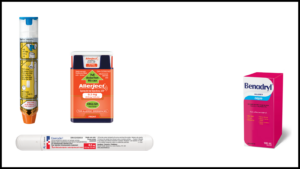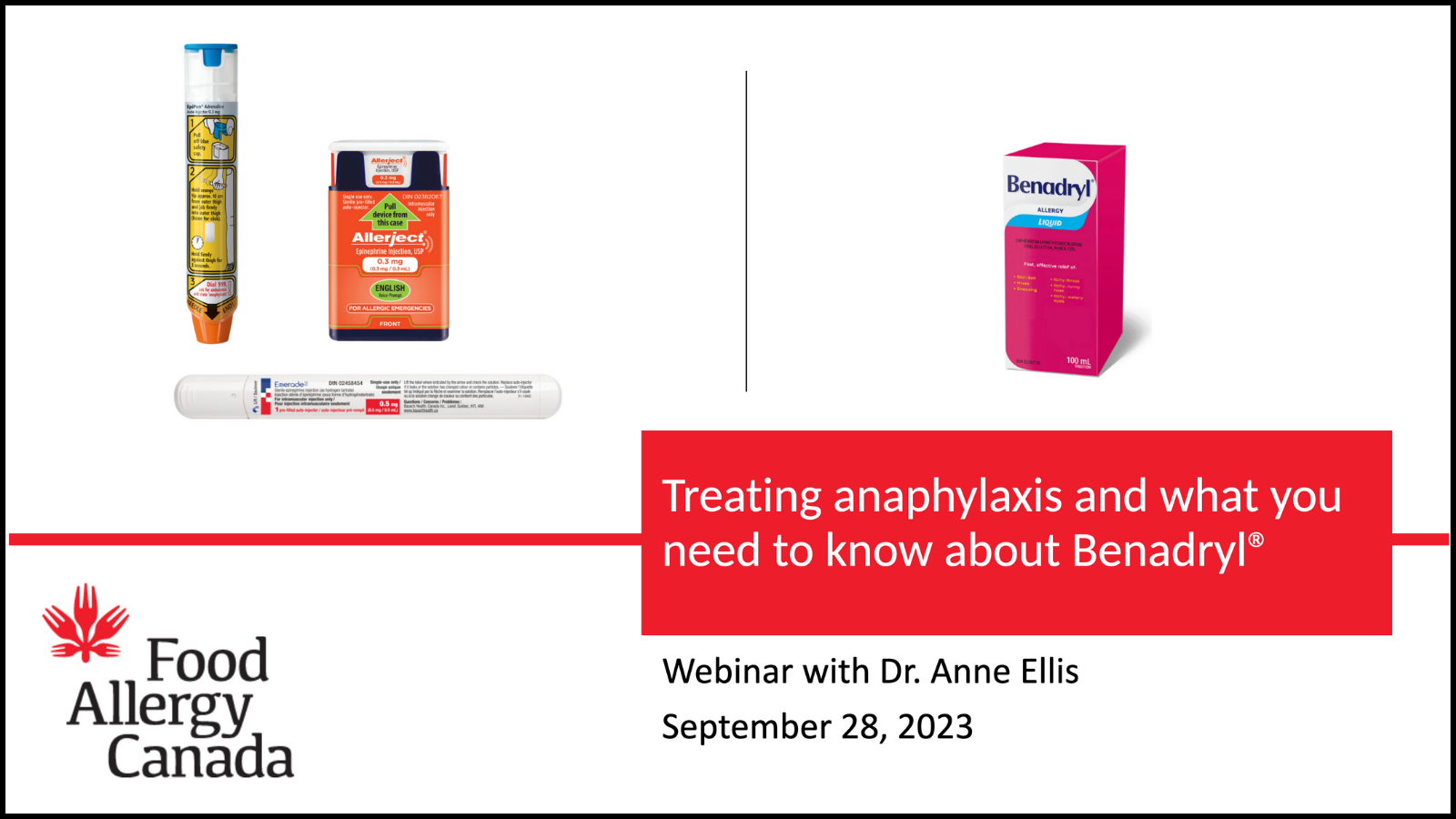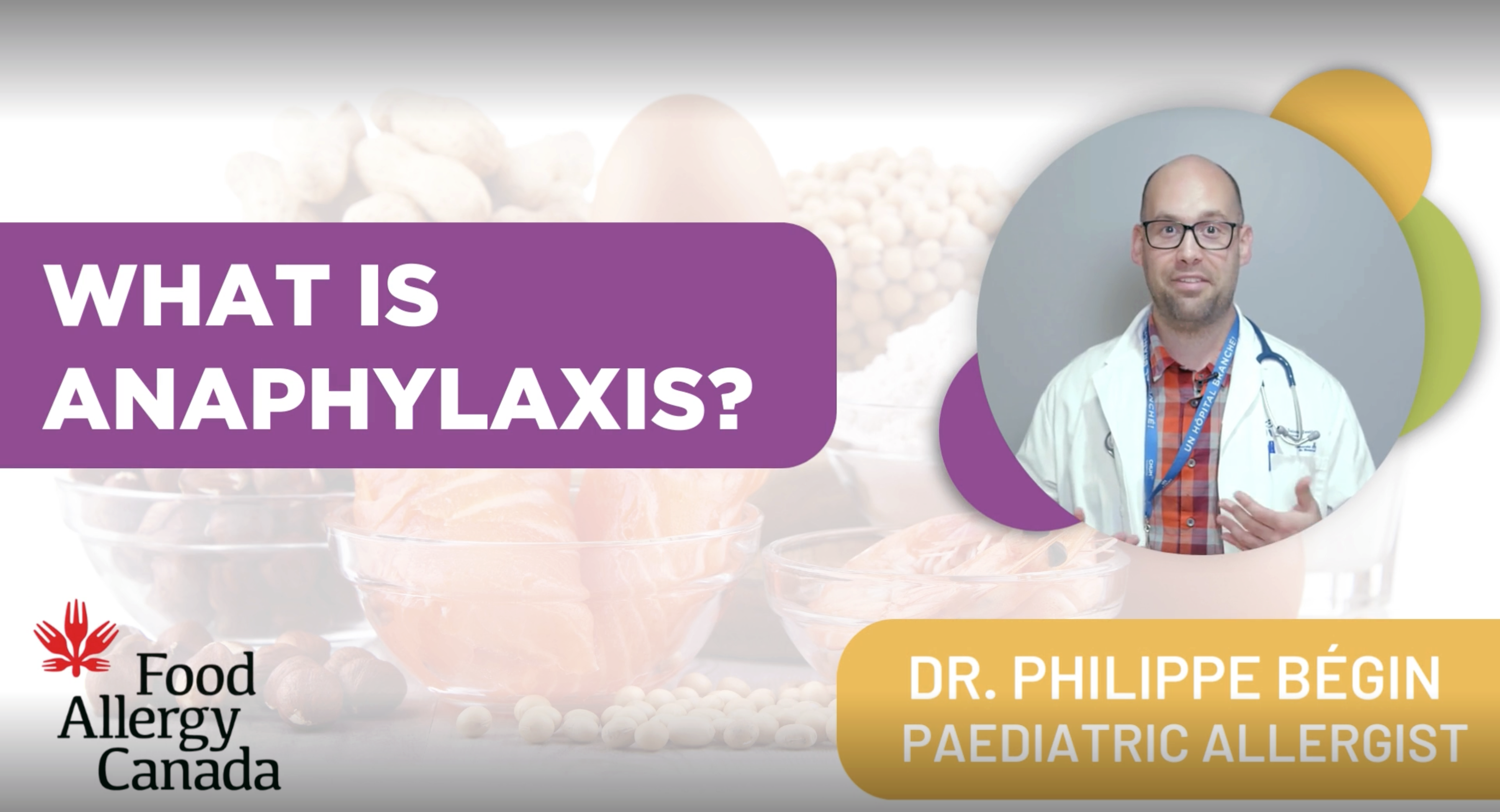Ask the allergist is a regular feature in our newsletters where Canadian allergists answer your questions!
Please note: The allergists featured in this series answer questions on general topics, please talk to your doctor if you have questions about your own health or the health of your child.

This month Dr. Anne Ellis answers questions about epinephrine, antihistamines, and treating anaphylaxis.
Dr. Ellis presented a recent webinar on this topic, and below, we are sharing her answers to two of the questions that were asked during the session. If you have not yet watched the webinar, we encourage you to do so to learn more on this topic.
Questions
1. What is the fastest-acting antihistamine? What, if anything, can you do for an anaphylactic reaction if you don’t have an epinephrine auto-injector?
The brands Reactine® and Rupall™ have the fastest onset of action, and even quicker when given as a suspension (liquid form). You can ask your physician for a prescription for these. If you have anaphylaxis with no epinephrine auto-injector handy, you must go to your nearest ED, or call 911 or local emergency medical services.
2. If you take antihistamines for hives and within 2 hours experience another body system, does that count as 2 body systems?
Technically yes, usually anaphylaxis takes less than 2 hours to onset. An epinephrine auto-injector is safe to use, and using it should help provide reassurance that the correct treatment has been administered.

Dr. Anne Ellis is a Professor of Medicine and Chair of the Division of Allergy and Immunology at Queen’s University, and the James H. Day Chair in Allergic Diseases and Allergy Research. She is the Director of the Environmental Exposure Unit and the Allergy Research Unit at Kingston General Hospital, the President of the Canadian Society of Allergy and Clinical Immunology, and also serves on the Joint Task for Practice Parameters which represents the American Academy of Allergy, Asthma and Immunology as well as the American College of Allergy, Asthma and Immunology.
Please note: Dr. Ellis is answering as an individual allergist and her answers do not constitute an official position of her affiliated organizations. Her responses are for informational purposes only and do not constitute specific medical advice, recommendations, diagnosis, or treatment. Please talk to your doctor about any concerns or questions you may have regarding your own health or the health of your child.
Do you have a food allergy-related question you’d like to ask an allergist in the months to come? If so, send it along to us at info@foodallergycanada.ca.
Tags: Anaphylaxis, antihistamines, Epinephrine


